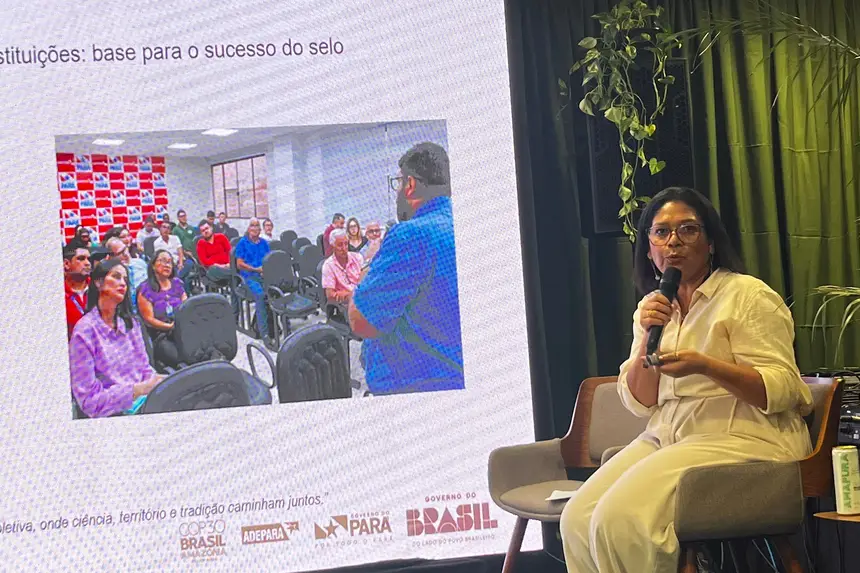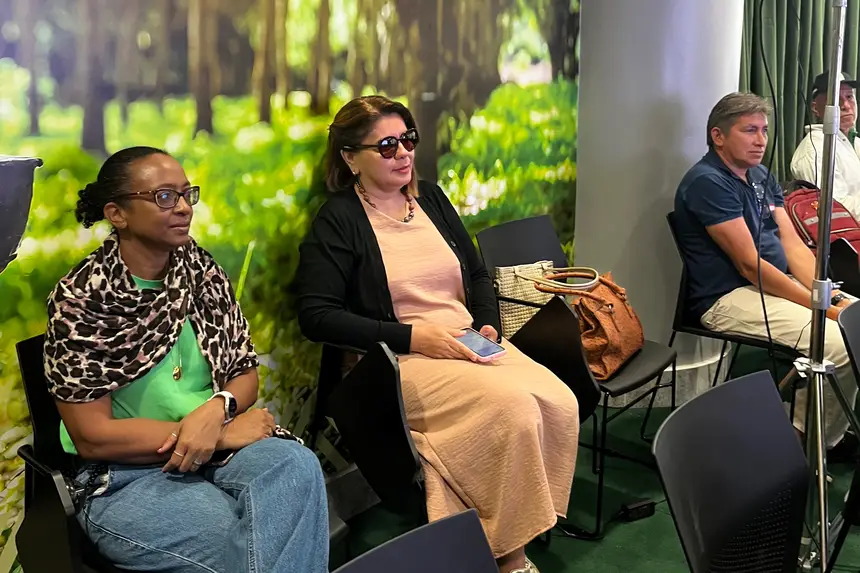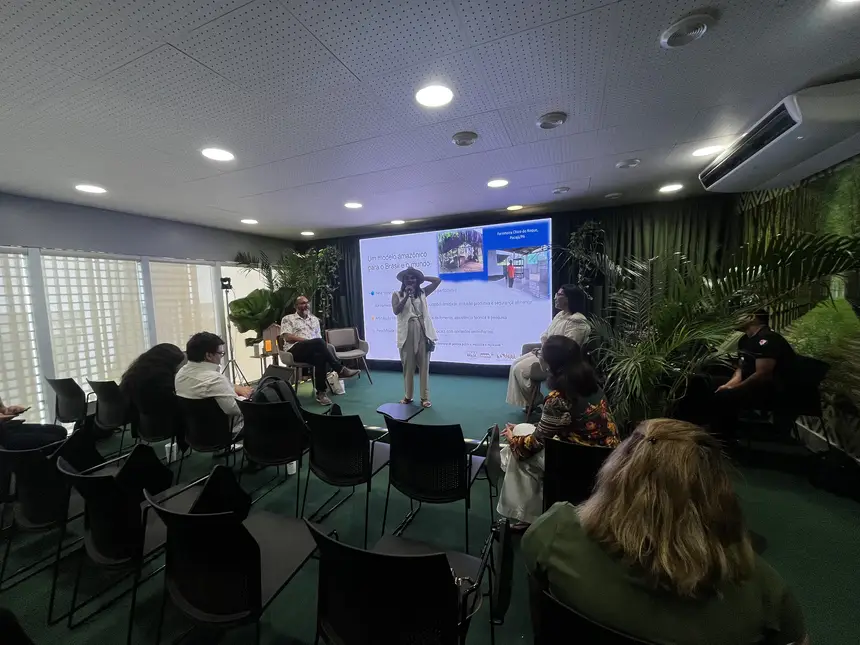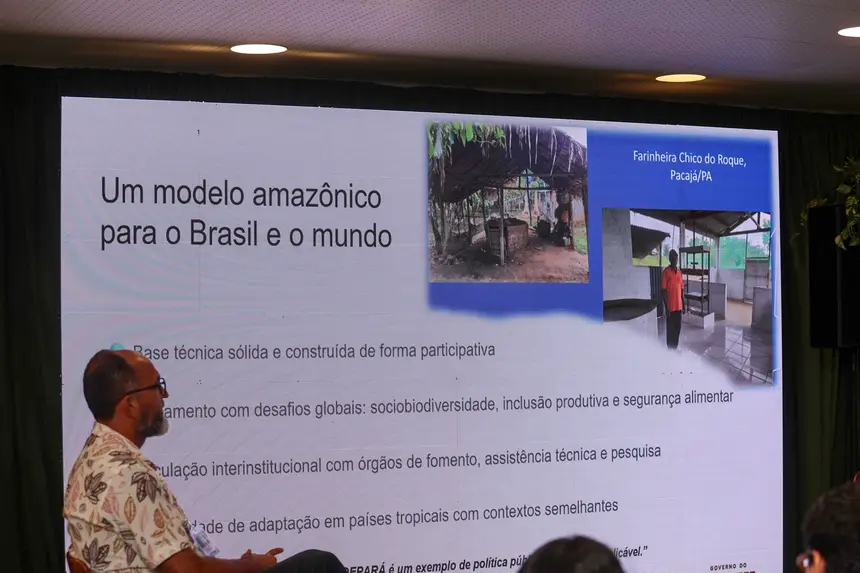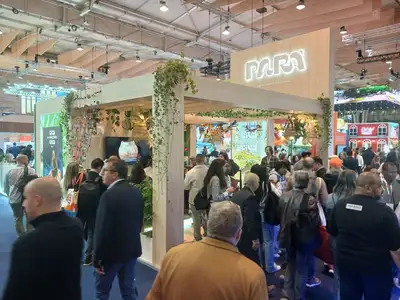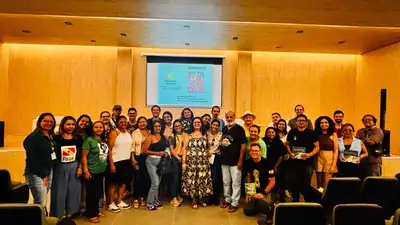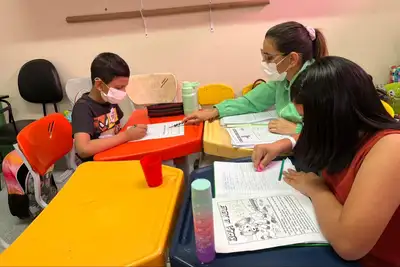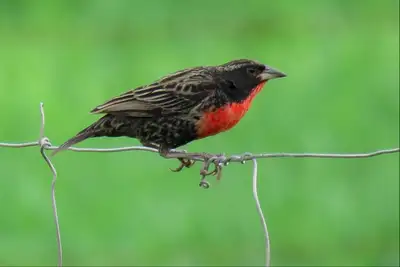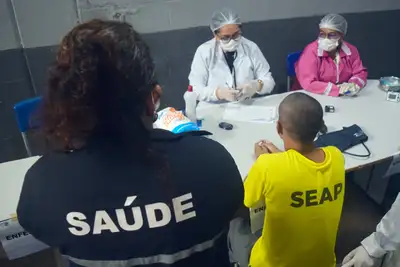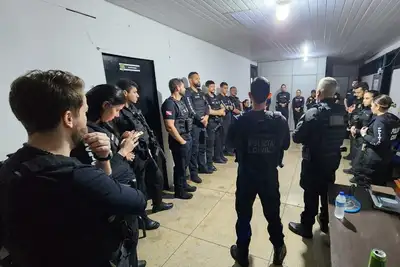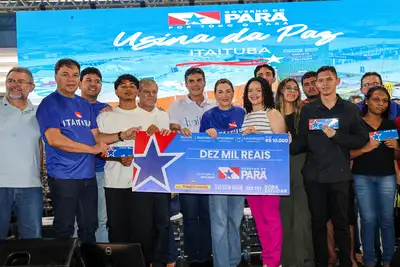At COP30, Adepará highlights Pará's pioneering role in valuing bioeconomy and family farming
Currently, the State has about 400 agro-industries producing safe and quality food, driven by innovative public policies for productive inclusion.
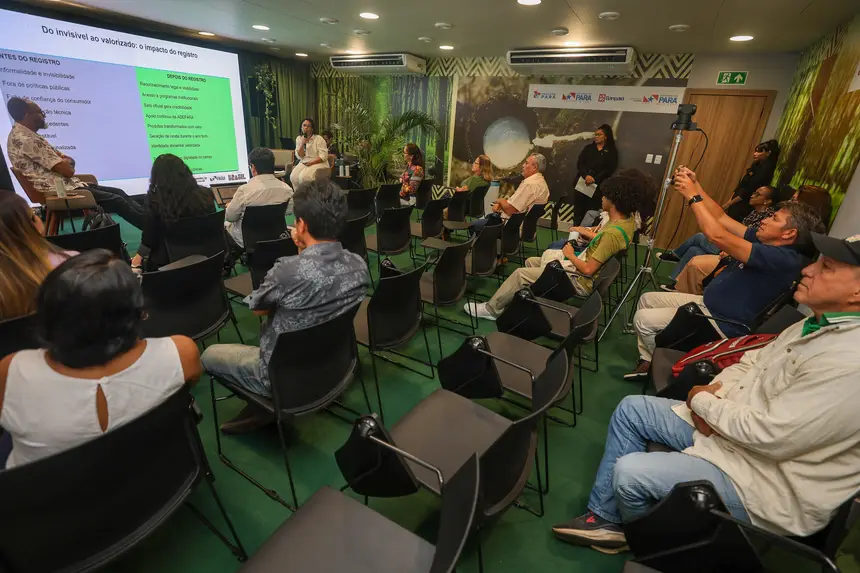
Pará presented, on the second day of COP30, its leading role in promoting a sustainable and inclusive bioeconomy that strengthens family farming without causing deforestation. Currently, the State has about 400 agro-industries producing safe and quality food, driven by innovative public policies for productive inclusion.
Pioneering in the implementation of the Artisanal Plant Seal, the government of Pará, through the Agricultural Defense Agency of Pará (Adepará), presented at the conference the results of this policy that stimulates agro-industrialization in the field and fosters sustainable food production. The topic was addressed in the panel "Artisanal Plant Inspection Seal: productive inclusion and climate resilience through the registration of traditional food establishments in the Amazon of Pará," held this Monday (10), at the Pará Pavilion, in the green zone.
The panel brought together representatives from the Defense Agency, the third sector, and family farming, who shared experiences and perspectives on strengthening the Amazonian bioeconomy.
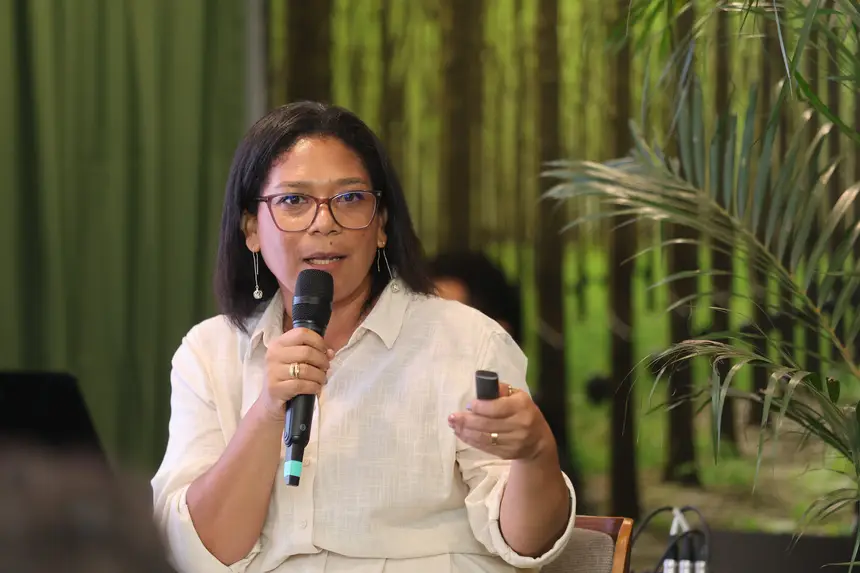
The Inspection and Plant Classification Manager at Adepará, Joselena Tavares, explained that the artisanal plant seal policy has been implemented in various regions of the State and highlighted the innovative nature of the initiative.
“Agro-industrialization emerges as an alternative to increase the shelf life of products, ensure income for producers throughout the year, and avoid food waste. Thus, we generate more income in the field and reduce pressure on the forest. There is no fair climate transition without productive inclusion,” emphasized the agronomist.
According to the agronomist, formal registration also combats clandestinity and adds value to products, allowing small producers to leave informality and gain legal recognition.
“It is an Amazonian model that can be replicated in other states and even in other countries. We have already received delegations from various regions interested in adopting this experience,” she stated.
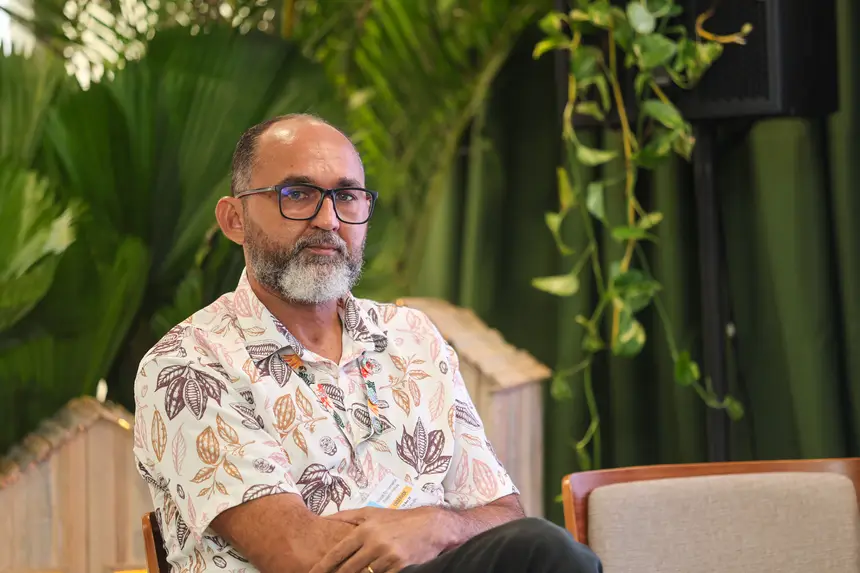
The researcher from the Amazon Environmental Research Institute (Ipam), Edivan Carvalho, reinforced the importance of partnerships for strengthening this public policy and its positive environmental impacts.
“These agro-industries prevent the opening of new cultivation areas, utilize agroforestry systems, and use clean energy sources, such as solar, with equipment suitable for small productions,” he explained. Currently, 12% of the agro-industries registered with Adepará maintain partnerships with Ipam and received technical support for the regularization process.
Among the registered establishments, more than 170 work with cassava derivatives, such as flours, farofas, tucupi, and tapioca gum. Pará's bioeconomy products now occupy space on the shelves of major supermarket chains and even in international markets.
Traceability and guaranteed quality
The panel presented successful cases of Pará's agro-industrialization, which ensures traceability from raw material to final product. One example is Farinha Quebec, produced in Tomé-Açu, which is already exported to five countries. The enterprise is led by farmer Ginelda Lima, who coordinates a network of over 50 cassava suppliers and already has ten registered products.
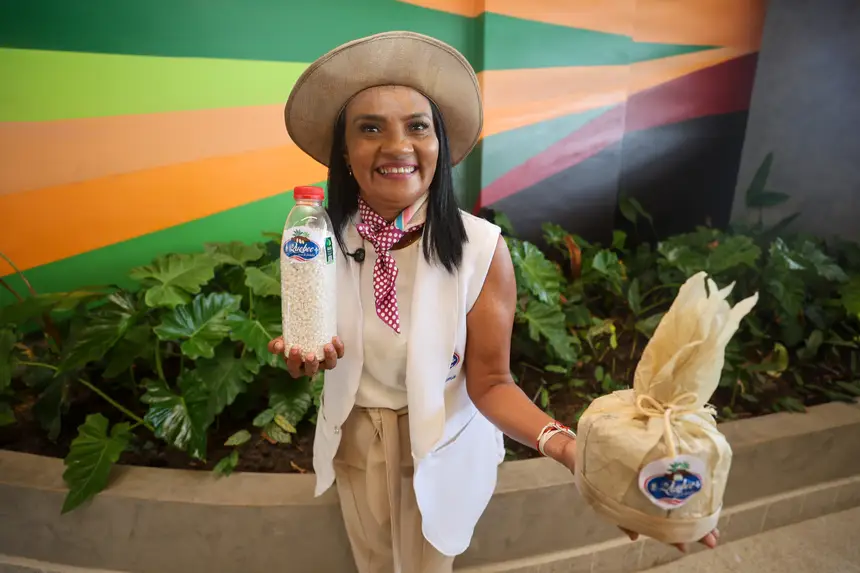
“The artisanal seal added value to my product and improved our quality of life. My customers consume with confidence and affection because they know that the flour is made responsibly and following all hygiene standards,” celebrates Ginelda.
How to obtain registration
To receive the Artisanal Plant Seal, the producer needs to comply with Good Production Practices, making improvements to facilities, ensuring hygiene in handling, and proper transportation of food. Adepará offers technical visits and guidance to assist producers in complying with sanitary regulations, ensuring quality food for the population.
Those interested in registering their agro-industry and legally marketing their products throughout the state should contact the ADEPARÁ office in the municipality where they operate.
Adepará at COP30
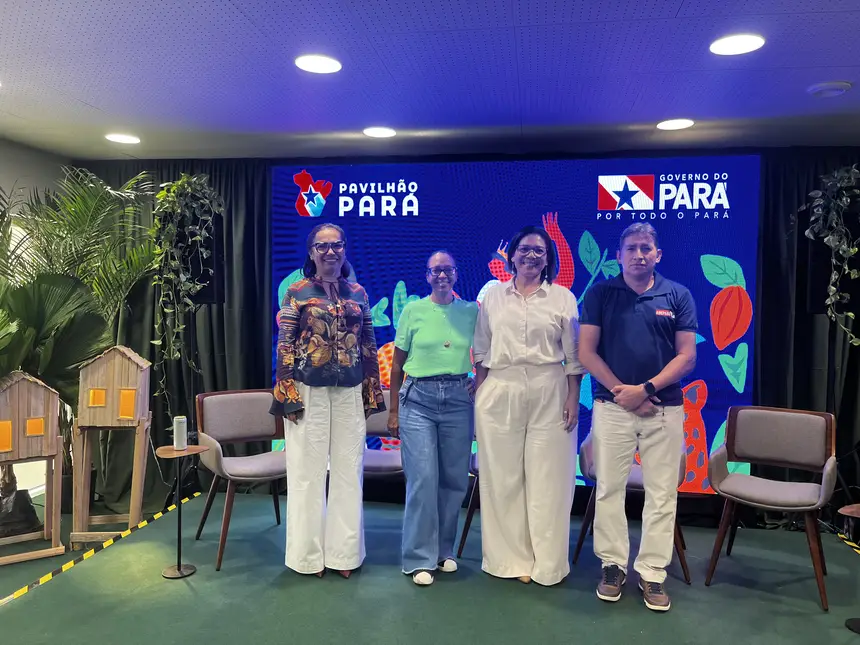
Adepará continues with programming at COP30. Next week, the Agency will participate in discussions on animal health and livestock traceability, focusing on the actions of the Sustainable Livestock Program of Pará, which reinforces the state's commitment to responsible production and environmental preservation.
About Adepará
Adepará is responsible for executing public policies for animal and plant health defense, inspection of agricultural products, and oversight of agricultural transit. Its actions ensure food safety, productive sustainability, and strengthening of the rural economy in the state.
With a presence in all municipalities of Pará, Adepará plays a strategic role in promoting traceable and sustainable agriculture.
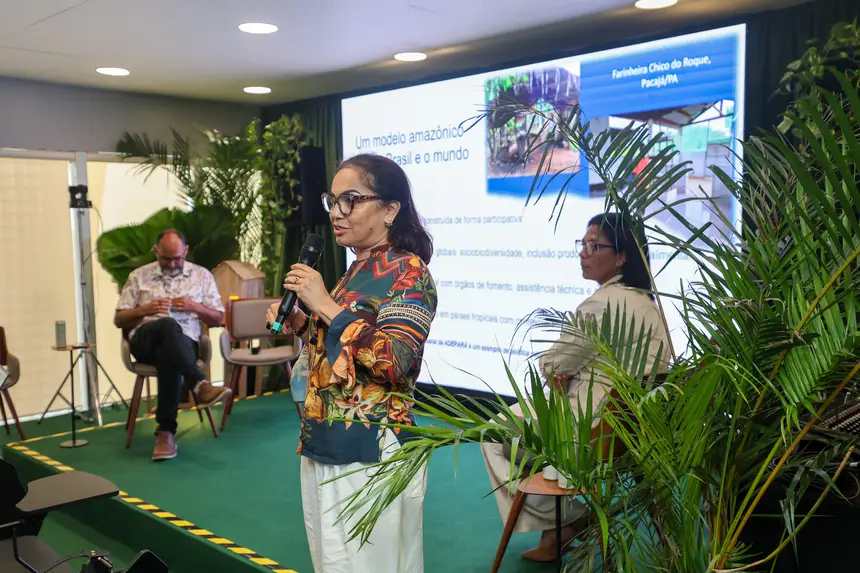
Program – Adepará at COP30
📍 10/11 | 5:30 PM | Castanheira Room – Pará Pavilion (Green Zone)
Panel: Plant Transit Guide (GTV) – Traceability, productive inclusion, and sustainability in Amazonian family farming.
📍 11/11 | 9:30 AM | Rubber Tree Room – Pará Pavilion (Green Zone)
Panel: Artisanal Plant Inspection Seal – Productive inclusion and climate resilience through the registration of traditional Amazonian foods.
📍 13/11 | 5:30 PM – 6:30 PM | Green Zone
Conversation circle: Rabies: the invisible link between humans, animals, and the environment.
📍 16/11 | 8 AM | Inhangapi (technical visit)
Theme: Sustainable livestock – visit with the Minister of Norway.
📍 17/11 | 2 PM | Agrizone
Presentation: Traceability and development of agricultural defense in Pará – meeting with OMSA board.
📍 18/11 | 7 AM – 12:30 PM | Inhangapi and Castanhal
Technical visits: Rural property and Mercúrio slaughterhouse – participation of OMSA board.
📍 19/11 | 3 PM | Faepa Auditorium
Conversation circle: Animal health, health for all.
📍 20/11 | 11 AM – 12 PM | Blue Zone
Official visit of OMSA board.



